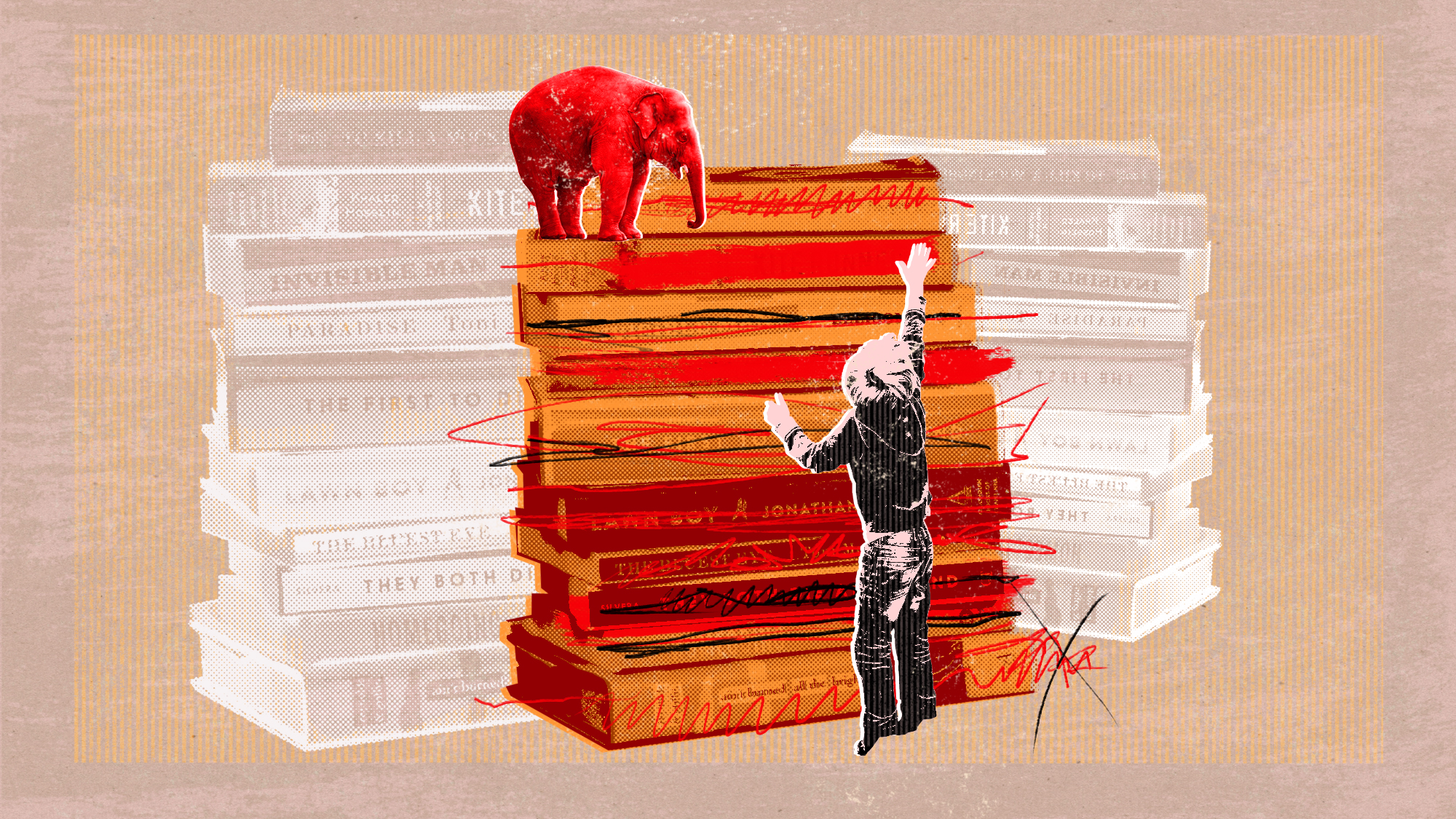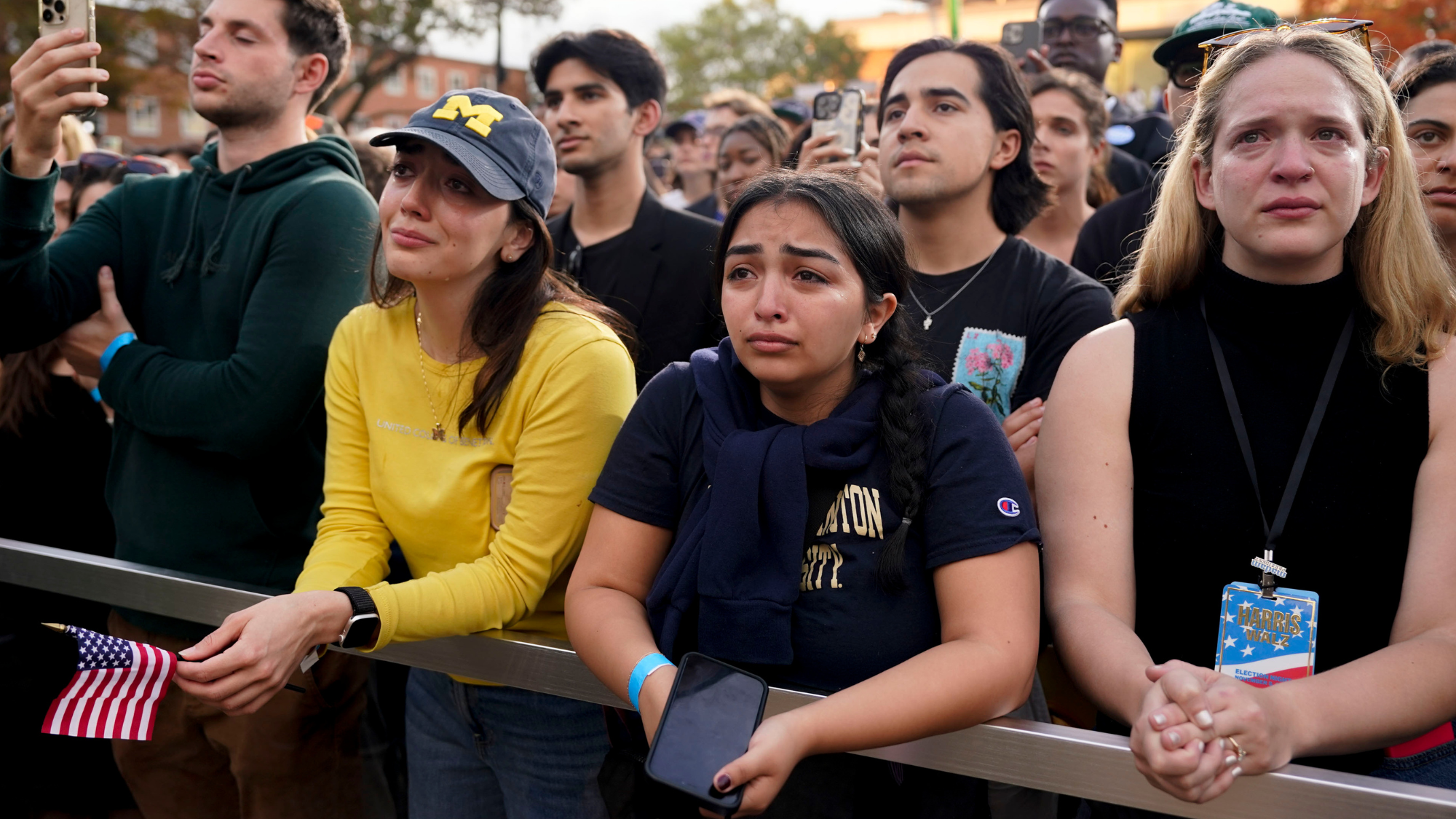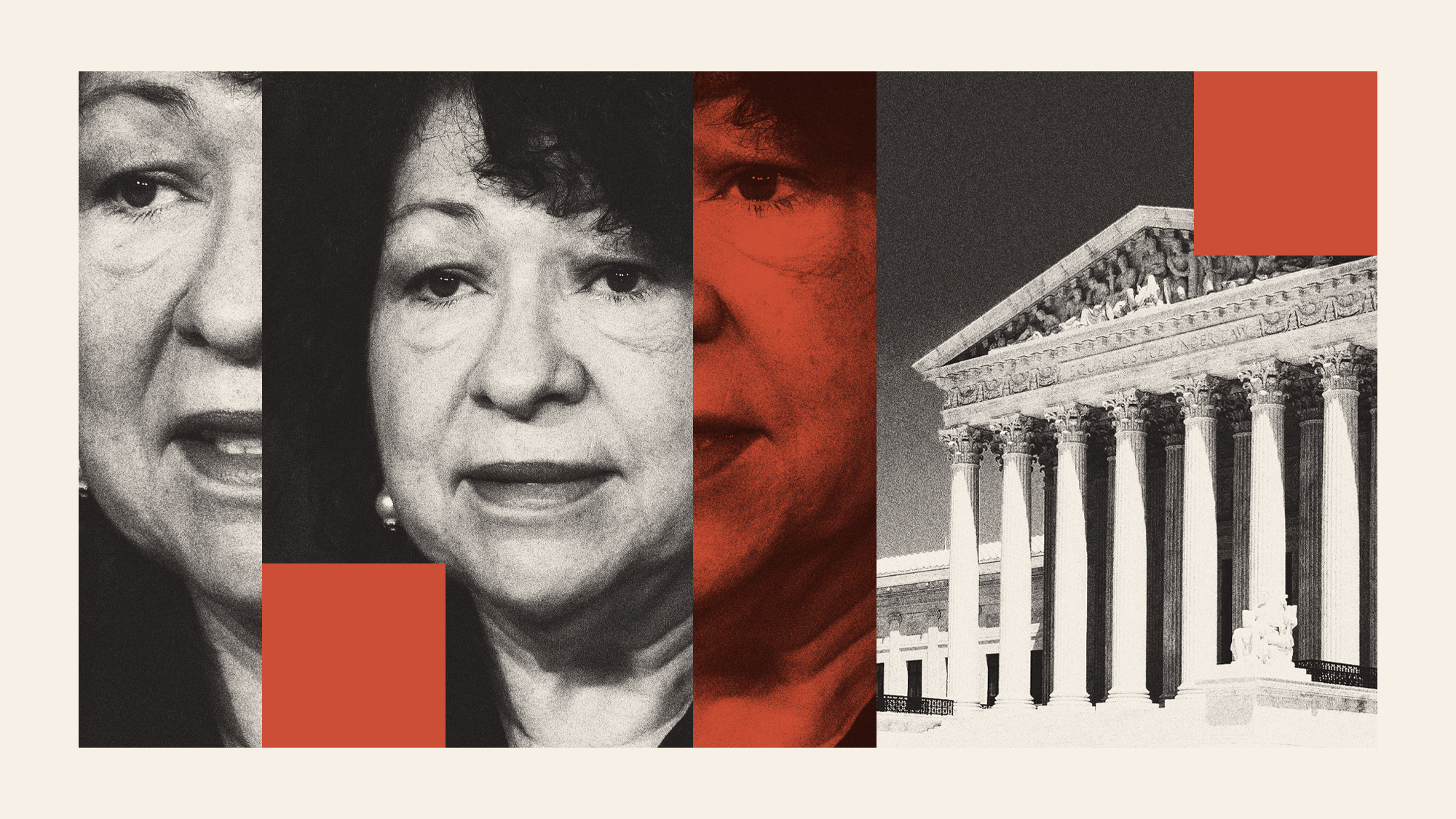Debating the 'book ban-demic'
Banned Books Week comes at tender time for libraries. Conservatives are skeptical.


Banned Books Week — running between Oct. 1 and Oct. 7 — is extra meaningful this year.
The observance, held every year since 1982, comes at "a tumultuous time for reading in America," The Hill reported. Schools and libraries suddenly find themselves fighting off "rising campaigns to remove titles from shelves." PEN America, the free speech group, said there was a 33% increase in attempts to restrict book access during the 2022-23 school year. "This is a dangerous time for readers and the public servants who provide access to reading materials," said Deborah Caldwell-Stone of the American Library Association.
"Gender Queer," an autobiographical graphic novel, is the most challenged book in the country, USA Today reported. Other oft-challenged books include classics like Toni Morrison’s "The Bluest Eye" and young adult favorites like "The Perks of Being a Wallflower" by Stephen Chbosky. Most of the challenged books "were written by or about LGBTQ+ people, Black people, Indigenous people and people of color."
The Week
Escape your echo chamber. Get the facts behind the news, plus analysis from multiple perspectives.

Sign up for The Week's Free Newsletters
From our morning news briefing to a weekly Good News Newsletter, get the best of The Week delivered directly to your inbox.
From our morning news briefing to a weekly Good News Newsletter, get the best of The Week delivered directly to your inbox.
But some conservative critics argue there is no "book ban-demic." PEN America has an "overly broad definition of a 'ban,'" Abigail Anthony argued at National Review. The "real question" isn’t how many books have been banned, but "what materials should be available to students." And not all books are appropriate for younger readers.
'Hardly pariah texts'
Banned Books Week is "eminently mockable," Matthew Walther argued at The New York Times. Many of the "most banned" books of the last decade or so are "war horses of junior-high English" — titles like "To Kill a Mockingbird," "Of Mice and Men" and "1984." But no state or federal law prohibits the purchase or ownership of those books, and challenged books remain available in stores and online. "These are hardly pariah texts."
Actually, some red states have passed laws that would imprison librarians for providing "explicit" or "harmful" books to children, countered Margaret Renkl, also of the Times. The criticism of librarians has become so "relentless and so demoralizing" that tens of thousands have left the profession. But book banners are the minority. "Americans are finally beginning to fight back." And books themselves are strong: "In the end, great books will always be their own best defense."
"Books are written to be read, not banned," Mitchell Kaplan, a bookstore owner, added at The Miami Herald. Now, however, authors are being "vilified" and librarians "face intimidation," which means that modern American book lovers have "never been through a period as perilous as right now." That’s why Banned Book Week exists. "I’m as confident as ever that the right to read will reassert itself."
A free daily email with the biggest news stories of the day – and the best features from TheWeek.com
'Catastrophic to American culture'
"Libraries have always been on the front lines of the conflict between censorship and free speech," Madison Ingram wrote at the Los Angeles Times. Back in the 1870s, The Comstock Act — originally designed to limit women’s reproductive freedom — was also used to force libraries to withdraw books like "Lady Chatterly’s Lover." During the early Cold War era, infamous Senator Joseph McCarthy called for Communist authors to be stripped from Voice of America’s overseas libraries. Now the threat to reading is back. "The loss of this intellectual freedom would be catastrophic to American culture and democracy."
"Censors aren’t the majority," Alyssa Rosenberg and Greg Sargent said at The Washington Post. That’s why defenders of reading need to "show up and make themselves known" — by writing letters to school boards to praise librarians and showing up at hearings on library budgets. They should also demand that politicians step up on the issue. There are "large, neglected constituencies" that want leaders to "articulate a forceful stand in favor of free expression."
For readers who want to access books that have been banned elsewhere, Mashable reported, The Digital Public Library of America offers The Banned Book Club. "Our mission is to provide anyone who is in a library that has banned a book access to the digital version for free," the club said on its website. In the digital era, a book that’s been pulled from your local library’s shelves is still just a click away.
Joel Mathis is a writer with 30 years of newspaper and online journalism experience. His work also regularly appears in National Geographic and The Kansas City Star. His awards include best online commentary at the Online News Association and (twice) at the City and Regional Magazine Association.
-
 Why Saudi Arabia is muscling in on the world of anime
Why Saudi Arabia is muscling in on the world of animeUnder the Radar The anime industry is the latest focus of the kingdom’s ‘soft power’ portfolio
-
 Scoundrels, spies and squires in January TV
Scoundrels, spies and squires in January TVthe week recommends This month’s new releases include ‘The Pitt,’ ‘Industry,’ ‘Ponies’ and ‘A Knight of the Seven Kingdoms’
-
 Venezuela: The ‘Donroe doctrine’ takes shape
Venezuela: The ‘Donroe doctrine’ takes shapeFeature President Trump wants to impose “American dominance”
-
 The new age of book banning
The new age of book banningThe Explainer How America’s culture wars collided with parents and legislators who want to keep their kids away from ‘dangerous’ ideas
-
 The military: Hegseth's escalating culture war
The military: Hegseth's escalating culture warFeature The Pentagon is ordering military academies to purge their libraries of books on race, gender, and discrimination
-
 Ukraine hints at end to 'hot war' with Russia in 2025
Ukraine hints at end to 'hot war' with Russia in 2025Talking Points Could the new year see an end to the worst European violence of the 21st Century?
-
 The future of X
The future of XTalking Point Trump's ascendancy is reviving the platform's coffers, whether or not a merger is on the cards
-
 The Democrats: time for wholesale reform?
The Democrats: time for wholesale reform?Talking Point In the 'wreckage' of the election, the party must decide how to rebuild
-
 What will Trump mean for the Middle East?
What will Trump mean for the Middle East?Talking Point President-elect's 'pro-Israel stance' could mask a more complex and unpredictable approach to the region
-
 Netanyahu's gambit: axing his own defence minster
Netanyahu's gambit: axing his own defence minsterTalking Point Sacking of Yoav Gallant demonstrated 'utter contempt' for Israeli public
-
 Should Sonia Sotomayor retire from the Supreme Court?
Should Sonia Sotomayor retire from the Supreme Court?Talking Points Democrats worry about repeating the history of Ruth Bader Ginsburg
